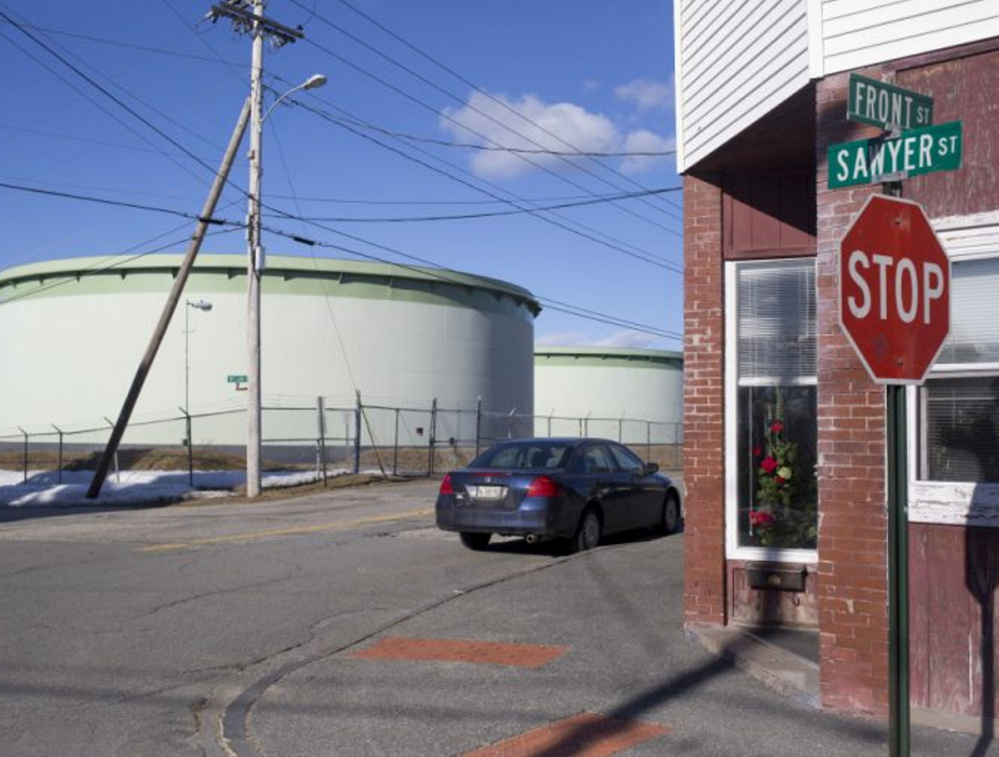A federal judge issued a telling preliminary decision Friday in a lawsuit that the Portland Pipe Line Corp. filed more than two years ago against the city of South Portland.
The company is challenging the city’s so-called Clear Skies ordinance, which banned oil exports from South Portland’s waterfront and effectively blocked the company from reversing the pipeline’s flow to bring Canadian crude to its terminals in Portland Harbor.
Judge John Woodcock Jr. issued an order Friday denying the city’s motion to dismiss the case and validating the company’s claim that it would reverse the flow of the pipeline if it could.
“The court concludes that (the company’s) proposed reversal project is in fact a real project, one that (the company) would immediately undertake if not prohibited by the Clear Skies ordinance,” Woodcock wrote in his decision filed in U.S. District Court in Portland.
Woodcock noted that company President Thomas Hardison presented the reversal project as “a matter of corporate life or death” when he testified on Aug. 9.
Hardison also submitted written testimony claiming that more than 100,000 barrels of crude oil from western Canada would be available to be shipped daily from Montreal to South Portland.
Woodcock acknowledged in his order Friday that the city’s expert had “convincingly testified” that cost, supply and demand factors might keep the reversal project from being financially viable and prevent the company from ever attempting it.
The company currently uses one of its two underground pipelines, though its flow has slowed to a relative trickle in the last year or so because of lack of demand for foreign crude in Canada.
Still, Woodcock found there was a “substantial likelihood” that the company – a Canadian-owned subsidiary of ExxonMobil and Suncor Energy – could reverse the flow of oil if it were successful in removing the Clear Skies ordinance as a legal barrier.
‘NO OTHER CHOICE’
“From the court’s viewpoint, the reason that (the company) is willing, even anxious, to take risks that (the city’s expert) deems unwise is that (the company) has no other choice.” Woodcock wrote. “Whatever else is disputed, it is a fact that (the company) owns two long pipelines which run in the ground from South Portland to Montreal and its current model of shipping oil to Montreal refineries that are awash with oil from other nearer sources is unsustainable. (The company’s) only alternative to shutting down its pipelines is to attempt to use them in a different way.”
Woodcock is expected to rule on the merits of the company’s claim against the Clear Skies ordinance in the next few weeks, South Portland City Manager Scott Morelli said Friday in a written statement. Morelli declined further comment.
The company issued a statement saying it was pleased with the court’s decision and would continue with its challenge of the Clear Skies ordinance.
Approved by the City Council in July 2014, the ordinance banned the loading of crude oil, including controversial tar sands oil from Alberta, Canada, into tankers on the city’s waterfront for public health and environmental reasons, effectively blocking the company from reversing the pipeline’s flow to bring oil from Canada to South Portland.
Tar sands oil is a mixture of heavy crude oil, sand and water that requires more energy and money to get out of the ground, process and refine, but that became marketable as oil prices rose several years ago. They have since declined.
For 75 years, the pipeline has transported foreign crude from its harbor terminals in South Portland to refineries in Montreal. The pipeline has been largely shut down in the last year or so because those refineries are drawing crude from western Canada and North Dakota.
CLAIM BASED ON INTERSTATE TRADE
Filed in February 2015, the company’s lawsuit claims that the city’s crude export ban is unconstitutional because it interferes with interstate trade, discriminates against Canadian interests, devalues the pipeline and infringes on areas of regulation best left to the federal government.
The city claims the company’s lawsuit is groundless because it had no plan to reverse the flow of the pipeline when the council approved the ordinance “to protect the health and welfare of (city) residents and visitors and traditional land use authority to promote future development consistent with the comprehensive plan,” according to court documents.
However, the company has moved to reverse the pipeline’s flow in the past.
The flow of one of the company’s two pipelines was reversed from 1987 to 1999 to transport natural gas to South Portland, an attorney for the company testified last year.
In 2008 and 2009, the company secured local, state and federal permits and approvals that would have allowed the same pipeline to transport crude oil to South Portland. The $2.3 million project never happened and the permits have since expired or been revoked or surrendered, according to court testimony and documents.
The attorney testified that the company cannot submit plans or pursue permits to reverse the pipeline’s flow because it would be an illegal operation under the city’s ban.
If the ban were overturned, the company would use plans developed nearly a decade ago but never used.
If the pipeline did transport as much as 100,000 barrels per day, or 36.5 million barrels per year, south from Montreal to South Portland, that’s less than a quarter of the 160 million barrels of foreign crude that flowed north through the pipeline in 2004.
The city has asked Woodcock to dismiss the lawsuit entirely. Whatever the outcome in U.S. District Court, the case will likely wind up in the 1st U.S. Circuit Court of Appeals in Boston.
The lawsuit has cost the city more than $1.15 million in legal fees through June 30. Supporters have donated $147,007.53 to the city’s Clear Skies Legal Defense Fund, posted on the municipal website www.southportland.org.
Kelley Bouchard can be contacted at:
kbouchard@pressherald.com
Send questions/comments to the editors.


